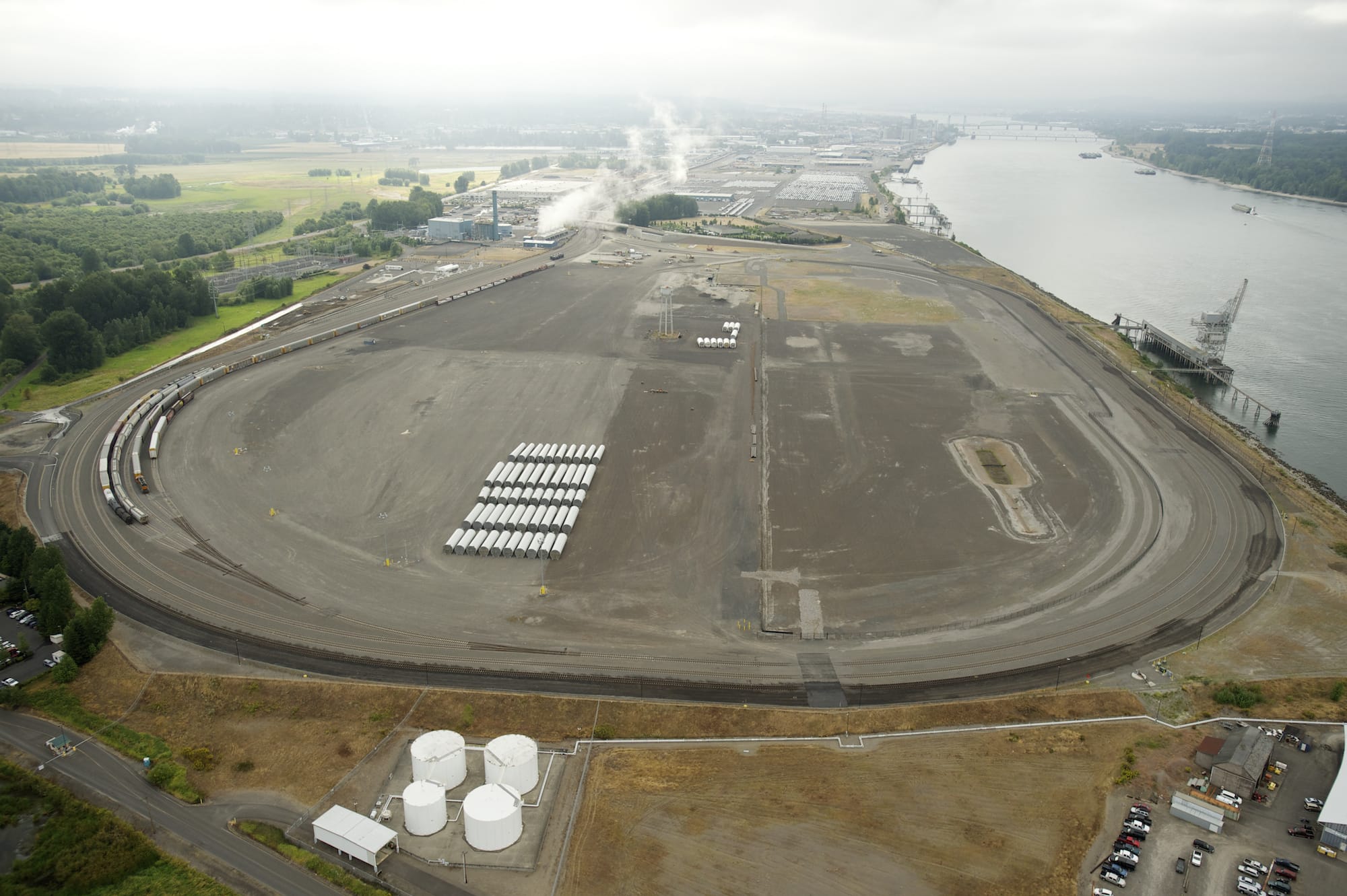The Vancouver City Council will vote June 16 on two resolutions: One to oppose plans for what would be the Northwest’s largest oil-handling facility at the Port of Vancouver, and one to formally intervene in the state Energy Facility Site Evaluation Council process.
During workshops Monday with Todd Coleman, the executive director of the Port of Vancouver, and executives from Tesoro Corp. and Savage Companies, the council was encouraged to intervene in the EFSEC process, which will end with a recommendation to Gov. Jay Inslee, who has the final say.
The city council doesn’t have authority over the lease with Tesoro-Savage, as that was signed with Port of Vancouver officials.
While the council was never directly asked not to pass a resolution opposing the project, Coleman spent an hour highlighting port investments and economic performance. Operating revenues have more than doubled over the past decade, Coleman said. He said the Tesoro-Savage project will be a tremendous boon to the port and the community, and he said he “absolutely” believes a thriving port can coexist with the city’s vision for a pedestrian-friendly waterfront.
Jared Larrabee, general manager in Vancouver for the proposed oil terminal for Savage Companies, Nathan Savage, a senior vice president for Savage, and Keith Casey, senior vice president of strategy and business development for Tesoro, all spoke to the council. They emphasized their leading role in calling for greater safety standards.
“This is an important project for Vancouver and for the country,” Larrabee said. He said recently reported cost increases for the project were attributed to design changes to improve safety, particularly in case of an earthquake. Tesoro Corp.’s chief executive officer told investors May 1 that building an oil transfer terminal in Vancouver could cost as much as $190 million, 72 percent higher than originally estimated.
Councilor Larry Smith, who along with Councilors Jack Burkman and Bart Hansen has been preparing the resolution to oppose the project, said he appreciated the officials’ comments, but didn’t seem reassured.
“We can talk about safety all we want, but it only takes one accident to destroy your community,” Smith said.
Burkman questioned Coleman about the heavily redacted lease released by the port, and said if he could see a clean copy.
No, Coleman said, citing sensitive information.
A majority of the council has expressed opposition to the project, but no formal vote has been taken.
In December, the city sent a letter to EFSEC outlining more than 100 areas of concern it wants the agency to include in its environmental impact review.
The city’s concerns reflect many of those raised by opponents, including potential oil spills, fiery train derailments, train-traffic impacts on neighborhoods, detrimental impacts to the waterfront redevelopment plan and greenhouse gas emissions. But the city struck a neutral stance in its letter, saying it encourages the agency to “require a full and comprehensive analysis” of the project’s impacts.
A June 16 vote to intervene in the EFSEC process would give the city standing to make arguments directly to EFSEC, introduce evidence, cross-examine witnesses and appeal the decision.
Prior to the June 16 vote on a resolution opposing the project, the council will have a May 19 workshop to discuss the draft resolution and a June 2 public hearing, said City Manager Eric Holmes. Seattle, Bellingham and other cities have passed resolutions calling for tougher safety regulations and putting a statewide moratorium on expanding oil-handling facilities or building new ones.



